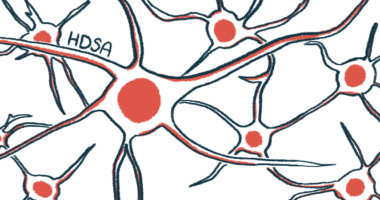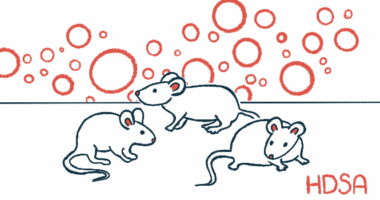Getting Involved in the Huntington’s Community Brings Great Rewards

I have only known one way to live in a family affected by a rare disease, specifically Huntington’s disease (HD). That way is not to sit back and wait for HD to come, but rather to seek it out and attack!
I don’t mean attack in a physical sense, of course, but rather finding ways to proactively confront the many challenges head-on. When my mother, Debbie, was diagnosed with Huntington’s disease in 1995, her first move was to meet with others here in Minneapolis to find out where help was needed. Her next efforts involved connecting members of Congress with local HD care facilities that needed funding.
Next, getting involved led my family to attend a fundraiser called a “hoopathon,” which later inspired us to host our own free-throw-shooting event. The hoopathon prompted my dad and sister to take on board roles at the local chapter of the Huntington’s Disease Society of America (HDSA). And it helped me to meet new friends, co-found the Huntington’s Disease Youth Organization (HDYO), and start a professional career in the pharmaceutical industry.
I share all of this not because I think it’s the path that everyone should take, but rather to encourage and show others that getting involved can lead to countless positive outcomes. One probably could add up the time my family dedicated to community involvement and it would be in the tens of thousands of hours.
Now, you might think you don’t have anywhere near that kind of time available, which makes sense. But what I’d like to showcase is all that my family received in return for all of those hours. We never intended to receive so much in return, it just happened as a result.
Some important things we’ve gained include:
Connection
The HD journey is not easy for a family. To navigate medical care, insurance, disability, and longer term care options, you will need help. By being involved, we met so many people who already had been in our family’s shoes. They guided us about where to go and what to do. This made our lives (particularly my dad’s) much easier by saving hundreds of frustrating hours trying to figure everything out on our own.
Support
The emotional toll on families affected by HD is like a roller coaster ride. Sometimes the people you need to talk to aren’t members of your direct family or group of friends, but rather those who truly understand your situation. We met so many wonderful people from HD families who became some of our closest friends and allies. Without their support and understanding, I am not sure where we would be today.
Opportunity
In one of my previous columns, I wrote about how the chance of success favors those who are prepared. There’s a similar truth here, too, because opportunities typically present themselves to those who make the effort to go out and search for them. I gained lifelong friends and experiences around the world based solely on being “out there searching” in terms of planning and speaking about the hoopathon and the HDYO.
As we approach a new year and you think about your goals, I encourage you and your family to consider new ways to get involved in the Huntington’s disease community. You can use this HDSA resource locator to find opportunities near you.
Those opportunities can be as simple as attending an HD education day, or that support group you’ve been putting off for so long. You could schedule an appointment with the HD clinic near you, just for the opportunity to meet with their team and learn more about the community and future treatments and trials. Maybe you’re ready to take on a roll at your local nonprofit. You could attend or host a small fundraiser for an HD cause and invite the community to support it.
Whatever it may be for you, try to take one step closer to the HD community in order to give back, and I guarantee you’ll be amazed at how much it gives to you in return!
***
Note: Huntington’s Disease News is strictly a news and information website about the disease. It does not provide medical advice, diagnosis, or treatment. This content is not intended to be a substitute for professional medical advice, diagnosis, or treatment. Always seek the advice of your physician or other qualified health provider with any questions you may have regarding a medical condition. Never disregard professional medical advice or delay in seeking it because of something you have read on this website. The opinions expressed in this column are not those of Huntington’s Disease News or its parent company, Bionews, and are intended to spark discussion about issues pertaining to Huntington’s disease.







Ann Jones
Very encouraging and insightful BJ for those people afraid to take that step forward into becoming part of the HD wider community.